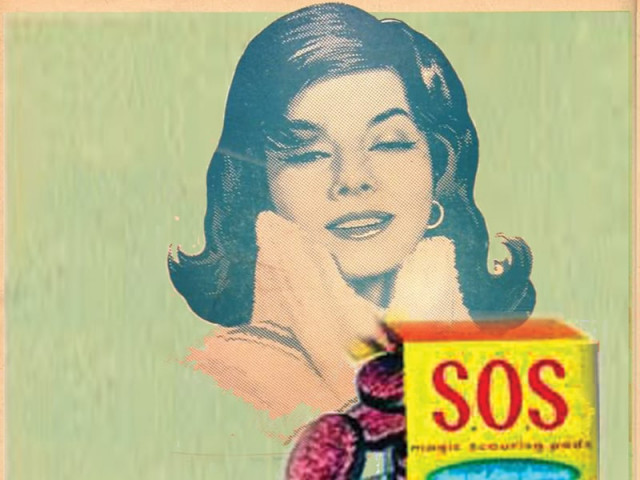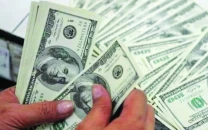Anti-anxiety pills in Pakistan: Mama’s little helper
Many women, men in Pakistan don’t think twice about taking addictive anti-anxiety pills rather than seeing a doctor.

Pakistanis are slowly going out of their minds. Going to a psychiatrist is out of the question. And even if we did, we’d probably have to wait weeks for an appointment: We only have 342 in the entire country. There is virtually no point in listing the triggers. We all know them. They range from deranged mothers-in-law to drive-by shootings. For many it is just that slow attrition of faith that we made the right choice to continue living here.
As a result, we bought 476 million anti-anxiety tablets in 2012 in Pakistan (see box on how numbers are calculated). The most popular household names are Xanax and Lexotanil. Others include Valium. If you think that number is high, consider that it wasn’t enough to meet demand, which is estimated to be double. According to Tariq Ikram, the CEO of Opal Laboratories that deals in the basic ingredient for anti-anxiety medication, the government has capped how much they can import. This means that drug stores run out of these pills at least twice a year. There isn’t enough to go around.
DOWNERS AND UPPERS
Men and women in Pakistan like anti-anxiety pills or benzodiazepines because they work immediately. One of the most popular ones is Xanax that was introduced here in 1991. It will, when properly prescribed by a doctor, relieve anxiety, help you get to sleep and relax your muscles. But what most people do not know is that if you abuse it, it can actually drag you down and depress you more. Abuse means habitually taking a drug to alter your mood, emotion, or state of consciousness.

People who take it without a prescription at higher doses get a Xanax “high”. This is like the effect alcohol has as a downer or the depressant effect of intoxication. Your inhibitions go out the window and your judgment is impaired. Oh, and one of the side effects is a lowered sex drive.
Psychiatrist Dr Uzma Ambareen says a large number of people who use and abuse this medication are women. They are increasingly becoming dependent on anti-anxiety pills to get to sleep. They take it themselves and hand it out to friends as well.

“The stress level is very high in our society and we are not very skilled at managing [it],” says Dr Uzma, as she is known at the free clinic in Karachi run by the Pakistan Association of Mental Health. According to her, the people who are abusing Xanax, Lexotanil and similar medication are actually masking symptoms of clinical depression or some other disorder that should be checked out by a specialist. “People are taking drugs to suppress their symptoms and are not seeking proper help,” she says. “This is primarily due to the stigma that is linked with going to a psychologist or psychiatrist. So a lot of people with depression or severe anxiety disorder never get diagnosed because they don’t get proper help.”
Anti-anxiety pills are just a temporary solution that carries the risk of addiction if not prescribed. “In my 35 years of work experience, I have seen many women, especially those belonging to affluent families, using Xanax as a quick fix for anxiety and stress, instead of going to a trained therapist,” says Dr Sadaqat Ali, the project director for Willing Ways (Pvt) Ltd. The treatment facility in Karachi has been seeing a rise in the number of people using Xanax. “These people think it is a solution to marital problems, relationship issues and life stresses, which in fact it is not.”
There is a significant risk of becoming addicted to an anti-anxiety medication if you are just buying it over the counter. If you continuously take one it stops being effective, driving you to take higher and higher doses.

Dr Sadaqat advises abusers against going “cold turkey” and stop taking it all of a sudden but consulting a doctor to wean yourself off it.
We become addicted to these anti-anxiety pills because we would rather die than see a doctor. “People are either scared of psychiatry, or they think it is mumbo jumbo, but it is neither!” says psychiatrist and psychotherapist Dr Unaiza Niaz. Even if anyone suggests that they need to see a psychiatrist, people around them are full of ridicule. They suggest the depressed person goes for coffee with friends to unburden or take up yoga. And while having a good support system and doing regular exercise are crucial for anyone’s wellbeing, sometimes our problems really require medical attention. We’d go to a doctor if our kidney developed an infection, why wouldn’t we go if we had constant depression?

Anti-depressants have become popular in Pakistan in the last two decades. And one of the best-selling ones is Prozac, a part of the new generation of pharmaceutical offerings that revolutionised this kind of health care. The new anti-depressant also treated anxiety so doctors didn’t have to prescribe two sets of medications, say practitioners. One pill treated them both.
“The change in prescription trends truly started with the introduction of fluoxetine (Prozac), the first SSRI,” says Tariq Ikram of Opal laboratories. SSRI stands for the complicated-sounding Selective Serotonin Reuptake Inhibitor. SSRIs block the reabsorption (reuptake) of the neurotransmitter serotonin (ser-oh-TOE-nin) in the brain. Changing the balance of serotonin seems to help brain cells send and receive chemical messages, which in turn boosts mood. SSRIs are called selective because they seem to primarily affect serotonin, not other neurotransmitters.The first SSRI, Prozac, worked for patients who had no psychiatric illness but were depressed and anxious due to stress in their environment. “It became the rage in the US and the effect spilled out elsewhere,” explains Ikram.
“The new generation anti-depressants have the advantage that they treat accompanying anxiety ... as well [as] depression,” he says. They are safer as well and, contrary to what people believe, lack the potential to become addictive — unlike anti-anxiety pills.
People in Pakistan are not that well-informed about this line of treatment and tend to buy into negative myths about it. There has been an advantage to this ignorance. It means that anti-depressants are not abused or taken freely without prescription. People are generally less aware of their names and more hesitant to take them.
Dr Niaz says that Prozac is considered one of the most effective and useful anti-depressants, but, as with all medication in general, it is extremely dangerous to take it and other SSRIs without a prescription from a trained psychiatrist. She warns that this is particularly important for patients with a family history of bipolar disorder or major psychosis.
It is also vital to understand this: “One anti-depressant doesn’t work for all,” she says. “Treating patients with psychotropic drugs is an art. It’s not as simple as antibiotics, in which you know which one is given for which infection.”
Anti-depressants are extremely sensitive drugs and should never be taken on the advice of a non-clinical person. They should be prescribed only by an expert after they take a detailed history of the patient and closely observe them “People [taking] such drugs have to be closely monitored and observed by a psychiatrist,” Dr Niaz adds. “Reading about it in books or on the internet and taking them on your own can be catastrophic.” People should understand that popping pills can cause severe reactions from a simple drug interaction or allergic reaction.
While this may be a silent epidemic in Pakistan today, there was such an alarming abuse of barbiturates by housewives in the 1960s that the British band, The Rolling Stones, recorded a twangy song, ‘Mother’s Little Helper’ in 1965. It went like this: Things are different today, I hear every mother say. Mother needs something today to calm her down. And though she’s not really ill, there’s a little yellow pill. She goes running for the shelter of her mother’s little helper...
Been down so long, it looks like up to me
The Peshawar region has only a handful of psychiatrists
It’s getting worse. Psychiatrists, and there are only about 25 of them in Peshawar, are seeing up to 50 patients a day. One indication of the severe shortage of doctors is that a patient should ideally get a one-hour session. There aren’t enough hours in the day in this part of Pakistan.
When people can’t or in many cases won’t see a psychiatrist, they try to solve the problem themselves. “A majority of patients with depression and anxiety self-medicate and this leads to addiction,” says Prof Dr Wajid of the Hayatabad Medical Complex. While he says he is not aware of any specific survey, he would put the rise in patients over the last few years from 23% to 55% across the country. The shortage of psychiatrists is so bad that people consult him during informal meetings as well. Every major hospital has set up psychiatry department and each of them receives a huge number of patients.
For those who can’t make it to hospital in Khyber-Pakhtunkhwa and FATA, including Bara, Dara Adam Khel and Miran Shah, one popular but dangerous solution is mixing a locally made Cabinot syrup with moonshine in an attempt to de-stress. “The increase in the demand for Lexotanil and Xanax means that shortages develop in the markets and shopkeepers rake up the price,” Wajid says. “But people still buy them no matter what the price.”
And when nothing else works, hashish is an old-time friend, especially when the tablets are not available in inaccessible areas. It’s cheap and has a strong effect. But it certainly doesn’t get the beast off your back.

The history of anti-depressants in Pakistan
Historically, antidepressants in Pakistan were given to established psychiatric patients only. The most commonly used was amitriptyline (Tryptanol). The first tetracyclic maprotiline (Ludiomil) was received well but did not replace amitriptyline, according to Tariq Ikram of Opal Laboratories. Paroxetine (Seroxat) is from the same group of medicines but it never became as big as Prozac. Then came citalopram, which made big splash. Sertraline and venlafaxine did not become a blockbuster but Escitalopram (Cipralex) became even more popular than its parent compound citalorpam.
Published in The Express Tribune, Sunday Magazine, May 26th, 2013.
Like Express Tribune Magazine on Facebook to stay informed and join the conversation.



















COMMENTS
Comments are moderated and generally will be posted if they are on-topic and not abusive.
For more information, please see our Comments FAQ